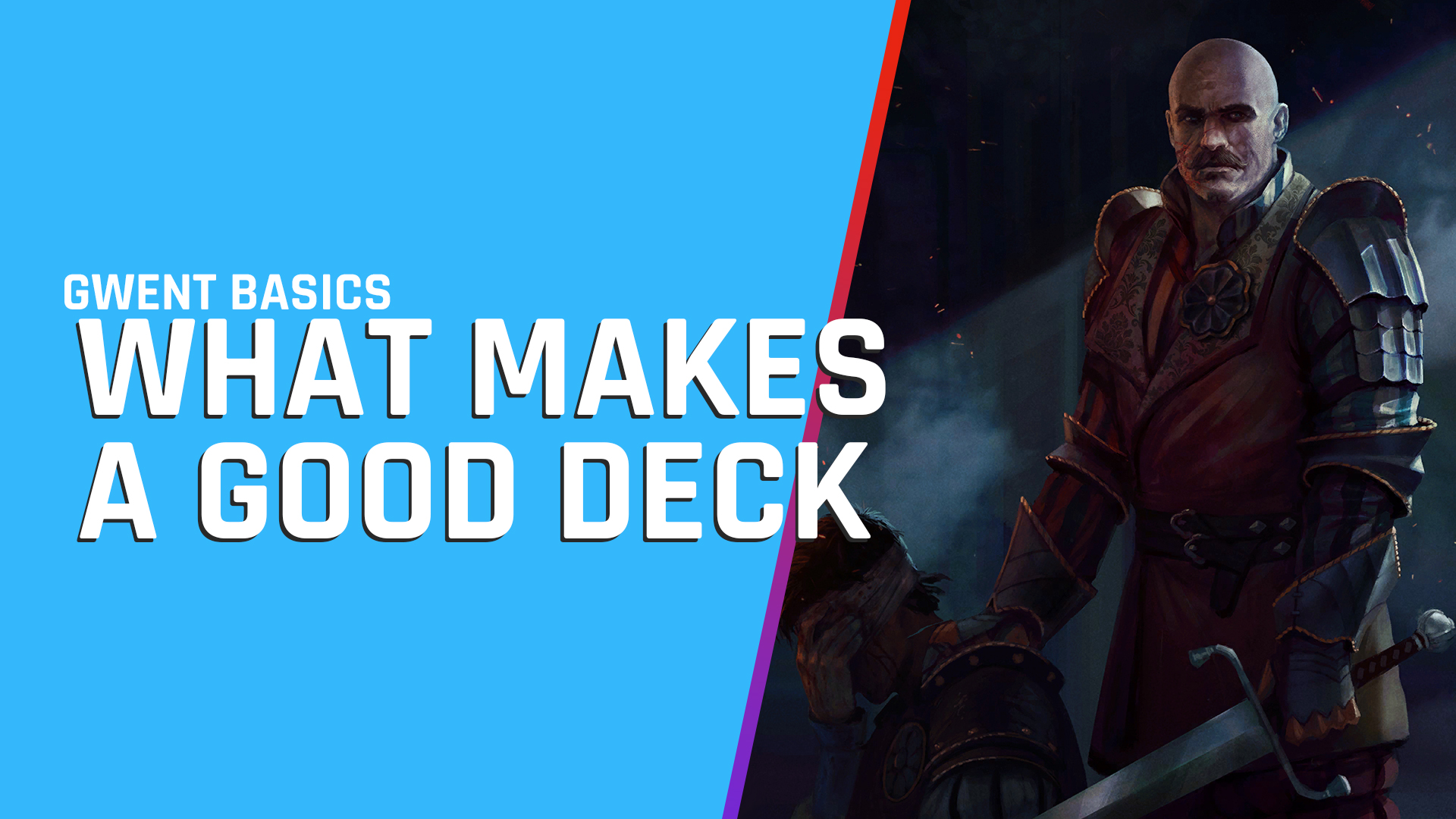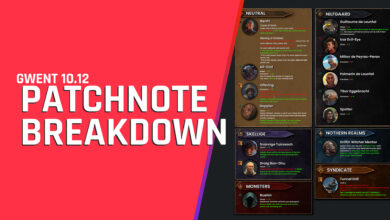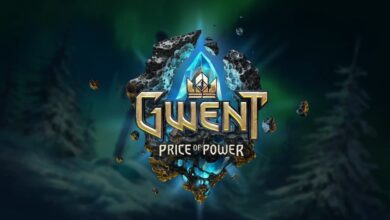What makes a good deck

Gwent is a wonderful game. Just a 10-minute game can give you a sense of joyous triumphant, grueling hatred or intoxicated dread. I myself am a sore loser and play for the joy of winning with my own creation. In this article I’d like to share with you what I think construct a good competitive deck.
For me personally, a good, complete deck have 2 fundamental qualities: flexibility and consistency.
Versatile gameplan
Don’t put all your eggs into 1 basket
A lot of the time when you scroll through the deck builder looking at cards, and you stumble upon this exciting idea that makes you create a deck around it. A fault befalls the most daring, wide eye memers, you start playing, you start to realize you rarely get to that point where this magical moment is allowed to happen. In my experience, this is a typical theme for a lot of meme decks. People have a crazy combo in mind and spend provisions on making sure that this combo works in a long round 3. But you can’t always win round 1, and in a round 2 bleed when your defender, Damien and Helge has assembled (Yes, I’m talking to you NG Damien degenerate enjoyer) opponent has already passed and you’re left to their mercy in r3.
The most obvious advice is to not put all your eggs into one basket. Have multiple packages of cards that do different things. Have a small size combo, not a combo that require 4 or 5 cards to work. Examples are NG Renfri (soldier point slams, lock Vilge control, Alba Pikeman for engines)
Mix different type of cards
There’s a common way to differentiate decks among 3 playstyles: engine, point slam and control. While there are benefits to categorize things this way, I find it quite reductive when it comes to how most decks function. Rarely do we find a meta deck that have strictly just 1 of these elements, but rather they adopt one of these styles for the main gameplan, while supplementing the main package with the other elements. While building the main package to serve your idea is the crucial part to create your deck identity, building a competent package of supplementary cards decide a large part of whether it’s competitive or not.
- Control decks need engines for proactive options.
For control decks, it’s worth having a few solid engines to ensure good proactivity in earlier turns, complimented with point slams to play in later turns. It is better that these engines are easy to gain value type, not the “having to stick behind defender” type, since your main gameplan of controlling opponent mean you don’t have enough resource to spare on helping these engines. A few examples of solid engines of this type are Chariot for ST, Redanian Knight for NR, Eternal Fire Disciple for SY.
- Engine decks needs control / tech options to not get stormed by greedy strategy etc.
To choose appropriate techs for your deck, consider the overall meta, and identify which cards in this meta are preventing you from executing your plan. For example, most engine decks in this meta like Knights and Harmony have been playing tech cards like Offering to answer Helge; Heatwave has always been solid in terms of a solution for everything, despite trading down almost everytime.
*Tips for tech this meta:
2 key cards that you should consider teching when you build your deck in this meta:
Hefty Helge (very binary card, plays for 4 or 20+ with huge control value, game deciding)
Tyr (Super strong deploy, but is also very scary when it sticks)
Good balance between Points and Consistency:
How you define consistency is an interesting topic. Consistency is not always about finding the most expensive 16 cards, but the best 16 cards that could be played during the game. A 4prov Pellar is sometimes worth more than a 10prov Mushy Truffle.
Most Gwent games are decided in 13-16 turns. The infamous rule of 16 is there to remind you to maximise the resource you’re given in the deck builder. On the other hand, it is important to not be so rigid about rule, but rather ask questions relevant to your creative idea.
Tutor for Key Cards, Thinning for point slams
Cards serving as consistency are divided into tutors and thinning. Tutors are often expensive, they let you choose the card to play, but hardly provide any extra points.
On the other hand, thinning cards often are cheaper, and can work as point slams.
If you’re a devoted deckbuilder, the good chance is you often find yourself making the decision between points or consistency, tutors or thinning. It’s hard to put a number to it. Your own intuition and experience in the game will be crucial when it comes to making this kind of decision. One way that can help you make this decision is to form a habit of looking at the deck at the end of each game to see how many things you’ve missed, have you managed to make use of your provision efficiently (this applies to the rule of 16), and can you improve consistency without sacrificing points.
Another tip could be to spend the same amount of provision on consistency cards but spread roughly those provision among a larger number of cards. For example: instead of playing AA and Oneiro for a total of 27 provs, you can play Oneiro + Decree + Knickers / Alzur’s Double Cross. This is not applicable all the time, as some tutors synergize better with a deck than others, but it’s worth testing with different types of tutors before calling your deck a finished project.
Most decks have a few key cards that are must-draw (Harmony Scenario, Knight Scenario), and others are important but not indispensable. If you play a deck with must-draw cards, direct tutors should be prioritized, whereas a midrange deck with somewhat similar function gold cards should be more suitable to use thinning package that provides pointslams value.
*Extra: I just want to name a few excellent Gwent deck builders and their style if you want to learn how they build decks:
Meta maker: Spyro, Shinmiri, Gandalf, Poisound, Pajabol, Nik R, Kerpeten
Meta breaker: Truzky, Kaneki Yamori, Magpie, me ^^ (Puzzle_Express)
Weird shit that somehow works: Truzky, Myamon, Lerio
Conclusion:
I am aware there are a few exceptions to the rule that I myself have made over time. When playing gwent, I notice a specific toxic feeling one feel when losing a game that is never in your control before it even started. That feeling is the compass for me to avoid at all costs when building a deck. A good deck allows me to enjoy the decision making that affect the outcome of a match, and often don’t give me depression when I see a specific leader appearing on the match making screen.
Have fun gwenting, stop playing Damien, Merry Christmas!




